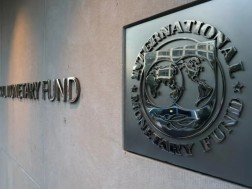PMC Research Centre published a report on Georgian Economic Climate. According to the document, in Q1 of 2024, the surveyed economists’ predictions for Georgia’s economic situation for the next six months are slightly positive. Their expectations in this regard have slightly worsened compared to the predictions they made in Q4 of 2023 and have significantly improved compared to the negative expectations recorded in Q1 of 2023.
In addition to assessing the current economic situation and gathering expectations for the next six months, the surveyed experts also made predictions with regard to Georgia’s main economic indicators.
• The expected real GDP growth for 2024, on average, is 5.3%.
• The inflation rate (year-on-year) is expected to increase for the next six months, with the expected rate of inflation for 2024 being 3.4%.
• By the end of the next 6 months, compared to the corresponding period of the previous year, the Georgian Lari is expected to be appreciated against the US Dollar and Euro and depreciated against Russian Rouble and the Turkish Lira.
• The volume of exports is expected to decrease in the coming six months, compared to 2023.
• The volume of imports is expected to increase in the coming six months, compared to 2023.
When asked to identify the factors having the greatest impact on the Georgian economy in Q1 of 2024, the surveyed economists pinpointed a labor shortage and Georgia’s EU candidate status. Other factors deemed by respondents to have a considerable impact in this period included a reduction in the monetary policy rate and Russia’s ongoing war on Ukraine.
• The surveyed economists tended to assess negative factors as more impactful (e.g. labor shortage and Russia’s war on Ukraine) than positive ones (e.g. decreasing monetary policy rate and low inflation rate).
As of January 2024, the NBG has been decreasing the monetary policy rate while also highlighting some factors that might alter the rate’s current downward trajectory.
• Of the factors underlined by the NBG, the surveyed economists considered geopolitical tensions to be the main risk possibly altering the downward trajectory of the monetary policy rate. Furthermore, most of the surveyed economists perceived risks of imported inflation as a high or very high with respect to the loosening of monetary policy.
• Georgia, since becoming an EU candidate country, has submitted its first Economic Reforms Program (ERP) to the European Central Bank (ECB). With that development in mind, the surveyed economists were asked to assess different areas of the ERP and how challenging each would be for Georgia in its efforts to align with EU standards.
• According to the survey results, employment and the labor market was chosen as the most challenging area regarding Georgia’s convergence with EU standards. Other areas considered challenging in this regard included energy reforms and social protection and healthcare.
• The opinions of the surveyed economists were most varied on the issue of how challenging it will be for Georgia to align its public finance management with EU standards.
• The World Bank’s “Unlocking the Potential of the Middle Corridor” study listed Georgia, Kazakhstan, and Azerbaijan as the three key countries of the Middle Corridor. Relatedly, the surveyed economists were asked to assess the potential impact of the Middle Corridor's
development on Georgia's economic growth.
• Most of the surveyed economists believed that the most significant effects of the development of the Middle Corridor on the Georgian economy would come through the growth of supporting industries, decreased dependency on trade with Russia and China, and diversified export markets.
•The IMF in its latest release of the World Economic Outlook suggested several general policy priorities for countries in 2024.
• According to the surveyed economists, enabling durable mediumterm growth is the most relevant of these policy priorities for Georgia.
• In addition, the surveyed economists also noted that rebuilding buffers to prepare for the future and strengthening multilateral cooperation to mitigate the effects of fragmentation are other policy priorities highlighted by the IMF that are relevant to Georgia.























